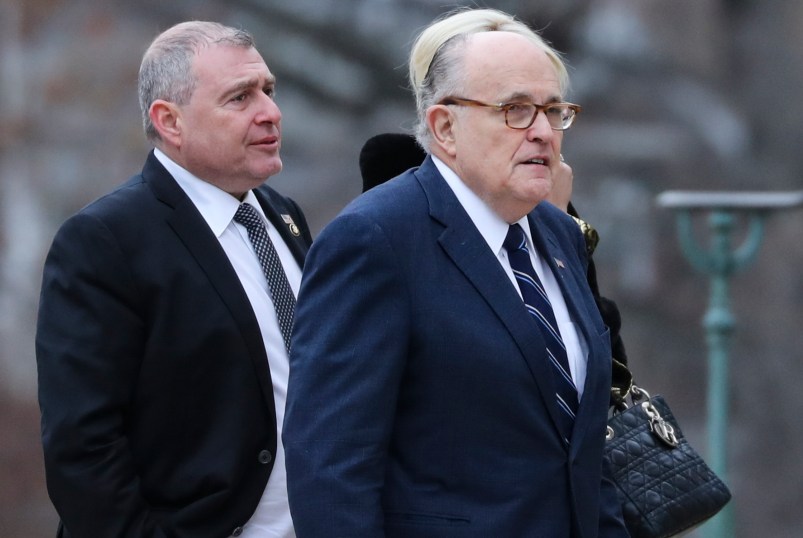This article is part of TPM Cafe, TPM’s home for opinion and news analysis.
Our broken campaign finance system allowed two Soviet-born men to use laundered political contributions to buy an audience with the president, and to make the case for warping foreign policy to advance private personal and political fortunes.
This little-noticed component of the impeachment inquiry offers a snapshot of how wealthy special interests use money to make their voices heard. And it further illustrates how the U.S. Supreme Court got it wrong in decisions like Citizens United that made this big money political spending possible.
In April of 2018, the two men, Lev Parnas and Igor Fruman, had an intimate dinner with President Donald Trump at the Trump International Hotel in Washington D.C. They turned the conversation to Ukraine, and urged the President to fire the U.S. ambassador to that country, Marie Yovanovitch.
Parnas and Fruman were indicted on criminal campaign finance charges last month.
According to prosecutors, the pair were pushing for Yovanovitch’s removal “to advance their personal financial interests and the political interests of at least one Ukrainian government official with whom they were working.” Ambassador Yovanovitch was reportedly viewed as an obstacle to Parnas’ and Fruman’s corrupt plans to restructure the state gas company to advance a natural gas import scheme.
So how did this self-interested pair, who have a history of failed businesses and connections to European organized crime, score a personal audience with the President to make this pitch?
They promised a six-figure donation to President Trump’s super PAC, America First Action.
America First Action arranged the April 2018 dinner, where Parnas, Fruman, and a dozen other top donors “dined and chatted about their pet issues with the President for about 90 minutes.” This was not a one-off event. It was part of a series of face-to-face meetings that the President has granted to big super PAC donors that have continued through today: just a few weeks ago, for example, President Trump hosted a “private roundtable” with donors who gave six figures to his supposedly independent super PAC.
To be sure, not every big donor is buying access to push a corrupt geo-political scheme to undermine U.S. foreign policy. Some donors just want to pay less in taxes. Others push more parochial matters.
But a system that trades six-figure political donations for access means that only the wealthiest few can afford to make their voices heard. The vast majority of Americans will never have hundreds of thousands of dollars to give to the President’s super PAC – and as a result, they’ll never have the opportunity to meet face-to-face with the President to describe how, for example, the cost of prescription drugs impacts their family.
In this particular case, Parnas and Fruman bought access with illegal funds. They laundered their $325,000 super PAC contribution through a shell corporation, triggering Campaign Legal Center’s July 2018 complaint, which helped lead to their arrest last month. But if the pair had just given to the super PAC in their own names, their purchase of a Presidential audience would never have drawn prosecutors’ scrutiny.
The cash-for-access transaction itself was perfectly legal, and far too commonplace in our big money-dominated political system.
What’s more, the big money that bought dinner with the President went to a super PAC that was supposedly independent of his campaign. Remember, when the U.S. Supreme Court paved the way for corporate-funded super PACs in its Citizens United decision, it did so under the assumption that they’d be “independent” of candidates, and promised that such independence guarded against any risk of actual or perceived corruption. But when President Trump affords direct access to those six-figure donors who give to his “approved” super PAC, that super PAC is anything but independent.
And when only the wealthy few can have their voices heard in our democracy, these transactions sure do look corrupt.
Brendan Fischer is the director of the federal reform program at the Campaign Legal Center.






